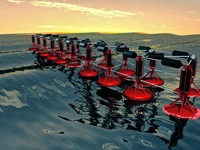Difference between revisions of "Generator"
From Nordan Symposia
Jump to navigationJump to search (Created page with 'File:lighterstill.jpgright|frame *Date: [http://www.wikipedia.org/wiki/17th_Century 1646] ==Definitions== *1 : one that generates: as a : an ...') |
m (Text replacement - "http://" to "https://") |
||
| (One intermediate revision by one other user not shown) | |||
| Line 1: | Line 1: | ||
[[File:lighterstill.jpg]][[File:SRI-wave-generator.jpg|right|frame]] | [[File:lighterstill.jpg]][[File:SRI-wave-generator.jpg|right|frame]] | ||
| − | *Date: [ | + | *Date: [https://www.wikipedia.org/wiki/17th_Century 1646] |
==Definitions== | ==Definitions== | ||
*1 : one that generates: as a : an apparatus in which [[vapor]] or [[gas]] is formed | *1 : one that generates: as a : an apparatus in which [[vapor]] or [[gas]] is formed | ||
| Line 8: | Line 8: | ||
*2 : a [[mathematical]] [[entity]] that when subjected to one or more operations yields another mathematical entity or its elements | *2 : a [[mathematical]] [[entity]] that when subjected to one or more operations yields another mathematical entity or its elements | ||
==Description== | ==Description== | ||
| − | In [[electricity]] [[generation]], an electric '''generator''' is a device that [[converts]] [[mechanical]] energy to [[electrical]] [[energy]]. The reverse [[conversion]] of electrical energy into mechanical energy is done by a motor; motors and generators have many similarities. A generator [[forces]] [[electrons]] in the windings to [[flow]] through the external [[electrical]] [[circuit]]. It is somewhat [[analogous]] to a [[water]] pump, which [[creates]] a [[flow]] of [[water]] but does not create the water inside. The [[source]] of [[mechanical]] [[energy]] may be a [[reciprocating]] or turbine [ | + | In [[electricity]] [[generation]], an electric '''generator''' is a device that [[converts]] [[mechanical]] energy to [[electrical]] [[energy]]. The reverse [[conversion]] of electrical energy into mechanical energy is done by a motor; motors and generators have many similarities. A generator [[forces]] [[electrons]] in the windings to [[flow]] through the external [[electrical]] [[circuit]]. It is somewhat [[analogous]] to a [[water]] pump, which [[creates]] a [[flow]] of [[water]] but does not create the water inside. The [[source]] of [[mechanical]] [[energy]] may be a [[reciprocating]] or turbine [https://en.wikipedia.org/wiki/Steam_engine steam engine], water falling through a [https://en.wikipedia.org/wiki/Hydropower turbine or waterwheel], an [https://en.wikipedia.org/wiki/Internal_combustion_engine internal combustion engine], a [https://en.wikipedia.org/wiki/Wind_turbine wind turbine], a hand crank, compressed air or any other [[source]] of mechanical energy. |
[[Category: Physics]] | [[Category: Physics]] | ||
Latest revision as of 00:16, 13 December 2020
- Date: 1646
Definitions
- 1 : one that generates: as a : an apparatus in which vapor or gas is formed
- 2. : A producer or cause, esp. one characterized as masculine; spec. a male parent, a father.
- b : a machine by which mechanical energy is changed into electrical energy
- 2 : a mathematical entity that when subjected to one or more operations yields another mathematical entity or its elements
Description
In electricity generation, an electric generator is a device that converts mechanical energy to electrical energy. The reverse conversion of electrical energy into mechanical energy is done by a motor; motors and generators have many similarities. A generator forces electrons in the windings to flow through the external electrical circuit. It is somewhat analogous to a water pump, which creates a flow of water but does not create the water inside. The source of mechanical energy may be a reciprocating or turbine steam engine, water falling through a turbine or waterwheel, an internal combustion engine, a wind turbine, a hand crank, compressed air or any other source of mechanical energy.
